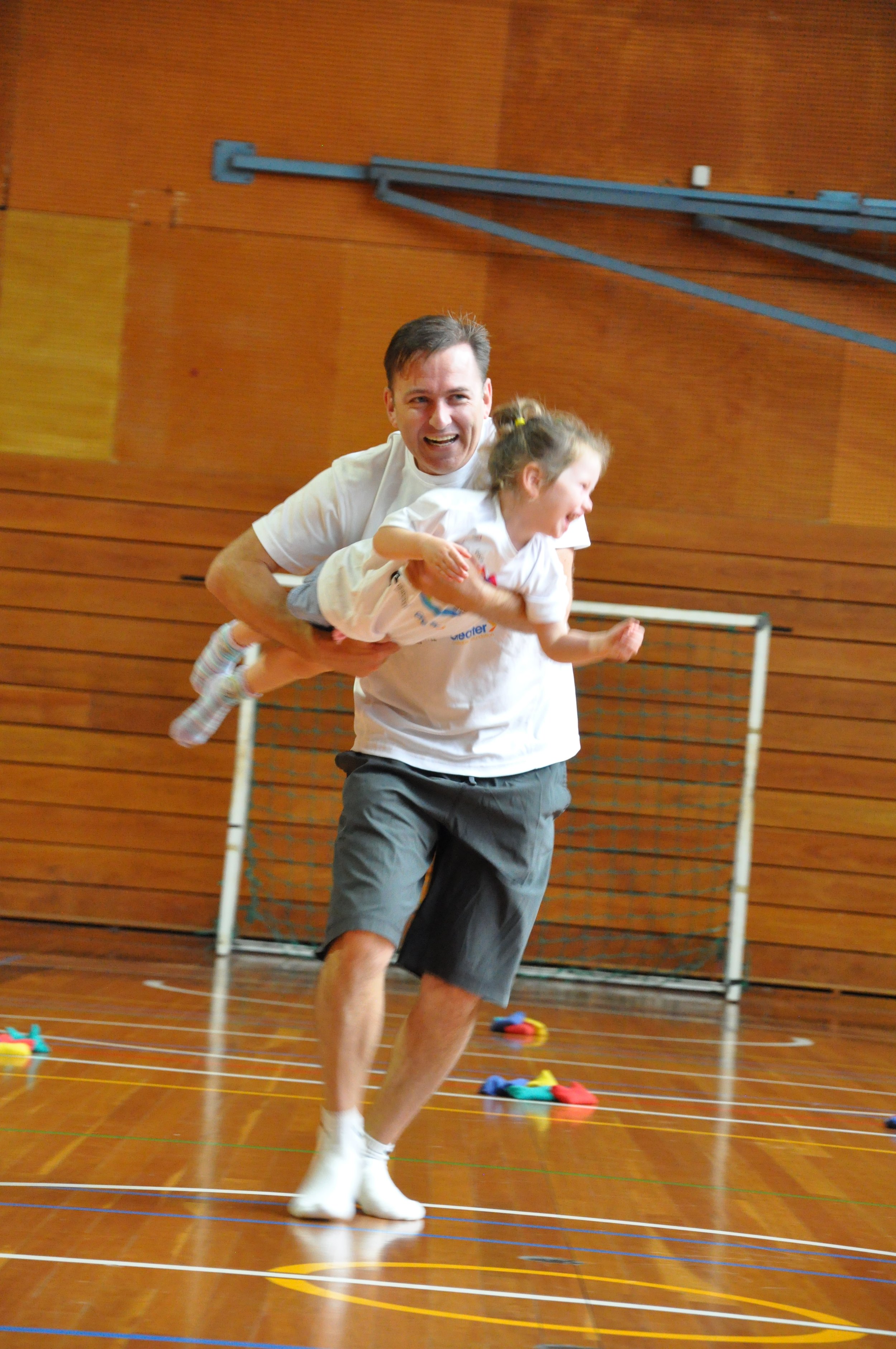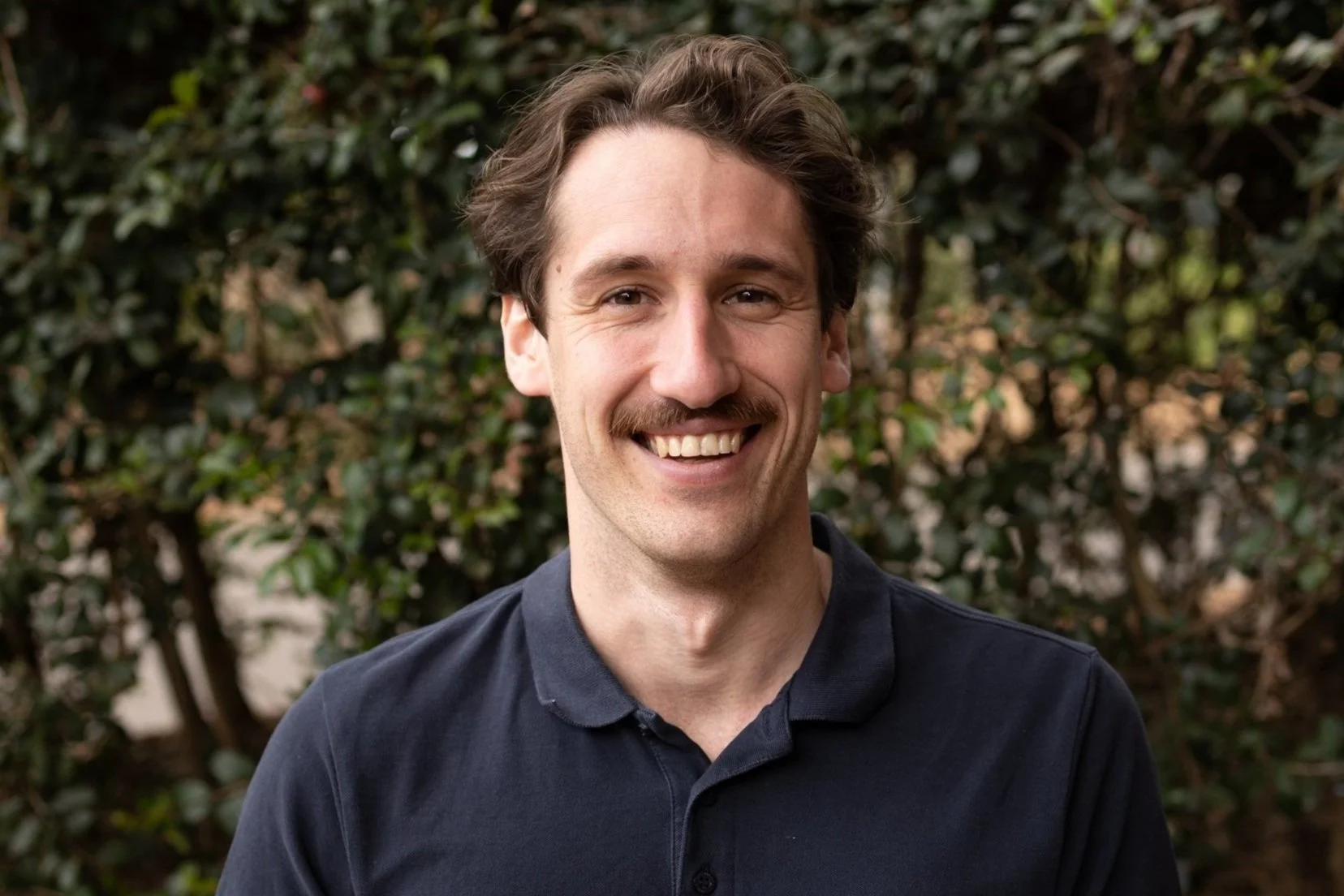
About us
Scroll down to read about the Healthy Youngsters, Healthy Dads program
What is Healthy Youngsters, Healthy Dads?
HYHD builds on the success of our other father-focused award-winning programs, Healthy Dads, Healthy Kids for primary school-aged children and their dads, and Daughters and Dads Active and Empowered which is specifically designed for primary school-aged girls and their dads.
The HYHD program aims to:
- Improve the physical activity levels, dietary behaviours and weight status of dads and preschool children.
- Motivate fathers to engage with their children and be a healthy role model for their families.
- Provide families with evidence-based parenting strategies to optimise their children’s nutrition, activity levels, sport skills, and social-emotional wellbeing.
What’s unique about HYHD?
- Based on rigorous research and award-winning programs.
- Evidence-based tips for nutrition, physical activity and parenting.
- Designed for fathers.
- Children and fathers get healthy TOGETHER.
The HYHD intervention provides fathers with evidenced-based parenting strategies, knowledge and motivation to improve their families eating and physical activity behaviour and optimise their child’s physical and mental development.
HYHD teach fathers about the importance of spending quality time with their children using healthy eating and physical activity as the engagement medium. The shared physical activity sessions provide opportunities for co-physical activity opportunities whilst teaching dads to effectively model physical activity and help families overcome common barriers. The program draws on best-practice research to promote positive parenting, facilitating better outcomes for children.
Why Youngsters?
Why Dads?
Why Youngsters? Why Dads?
Why Youngsters?
In Australia, 30% of children are overweight or obese, which increases their lifetime risk of many negative health concerns. Poor health behaviours are also becoming common early in life. In Australia, 99% of 2-4 year olds have insufficient fruit and vegetable intake, 76% are not meeting physical activity and screen-time guidelines and 25% are developmentally vulnerable when they start school.
Targeting this early age group is an important obesity prevention strategy for two main reasons:
Childhood obesity is known to track throughout life.
Poor lifestyle behaviours can be entrenched at a very young age, which makes them challenging to reverse later in childhood.
Why Dads?
Fathers play a key role in improving their children’s health behaviours and reducing their risk of obesity; however, they represent just 6% of parents in lifestyle programs for children.
Recent studies suggest that fathers’ weight profiles and parenting practices may be more influential than mothers’ for a child’s obesity risk.
Professor Philip Morgan’s team at the University of Newcastle are the leading group internationally in delivering father-focused research programs to improve children’s physical activity and dietary behaviours.
Meet The Founder
Phil is Co-Deputy Director at the Centre for Active Living and Learning at the University of Newcastle, Australia. As the father of three teenage girls, Phil recognises the important role fathers play in all aspects of their children’s lives. He is passionate about promoting healthy eating and physical activity habits for all fathers and their families, a focus that has driven his research for the past 15 years. Phil’s work has been published widely and he has won awards for the high quality research and teaching. In 2021, Phil was awarded the University of Newcastle’s College of Human and Social Futures Excellence Award for Research Engagement and Translation of the HYHD program.
Professor Philip Morgan
Meet the Current University Project Team
FAQs
-
The program is evidence-based in its development but also it’s impact. See the publications outlining the life-changing impact of this program.
Ashton, L. M., Grounds, J. A., Barnes, A. T., Pollock, E. R., Young, M. D., Kennedy, S, Rayward, A. T. Lee, D. R., Morgan, P. J. (2024). Replicability, adaptability, and long-term impact of the ‘Healthy Youngsters, Healthy Dads’ program in Newcastle, Australia. Health Promotion International, 39(4). https://doi.org/10.1093/heapro/daae095
Morgan, P.J., Grounds, J.A., Ashton, L.M., Collins, C.E., Barnes, A.T., Pollock, E.R., Kennedy, S., Rayward, A.T., Saunders, K.L., & Young, M.D. (2022). Impact of the ‘Healthy Youngsters, Healthy Dads’ program on physical activity and other health behaviours: A randomised controlled trial involving fathers and their preschool-aged children’, BMC Public Health, 22(1), 1-16. https://doi.org/10.1186/s12889-022-13424-1
Morgan, P.J, Collins, C., Barnes, A., Pollock, E., Kennedy, S.L., Saunders, K., Grounds, J., Rayward, A., & Young, M. (2021). Engaging fathers to improve physical activity and nutrition in their pre-school aged children: The ‘Healthy Youngsters, Healthy Dads’ feasibility trial, Journal of Physical Activity and Health, 18, 175-184, doi: 10.1123/jpah.2020-0506
Ashton, L., Morgan, P.J, Grounds, J., Young, M., Rayward, A., Barnes, A., Pollock, E., Kennedy, S.L., Saunders, K., & Collins, C. (2021). Dietary outcomes of the ‘Healthy Youngsters, Healthy Dads’ Randomised Controlled Trial, Nutrients, 13(10), 3306. https://doi.org/10.3390/nu13103306
-
Parent-child programs have predominantly targeted and engaged mothers. When programs are open to both parents, very few dads sign up. Our Healthy Youngsters, Healthy Dads program is designed to solely engage fathers/father-figures.
Mums/partners are encouraged to engage with the program home tasks, have discussions with their partner and children and are welcome to complete home activities with any of their other children.
-
Absolutely, we welcome their attendance with a significant male figure in their life. This might be a step-father, grandfather, uncle, older brother or trusted family friend.
The program is designed to educate and motivate male role models as the agent for changing a child’s physical activity levels, sport skills and social-emotional wellbeing. Unfortunately, we are unable to have children attend the program with their mothers.
-
Not at all, the program caters for all ability levels, from those who have never played sport, to those who play competitively. Facilitators and fathers are taught evidence-based, sports pedagogy to help them to modify activities to make them easier or harder, maximising kids’ enjoyment, engagement and skill development.









